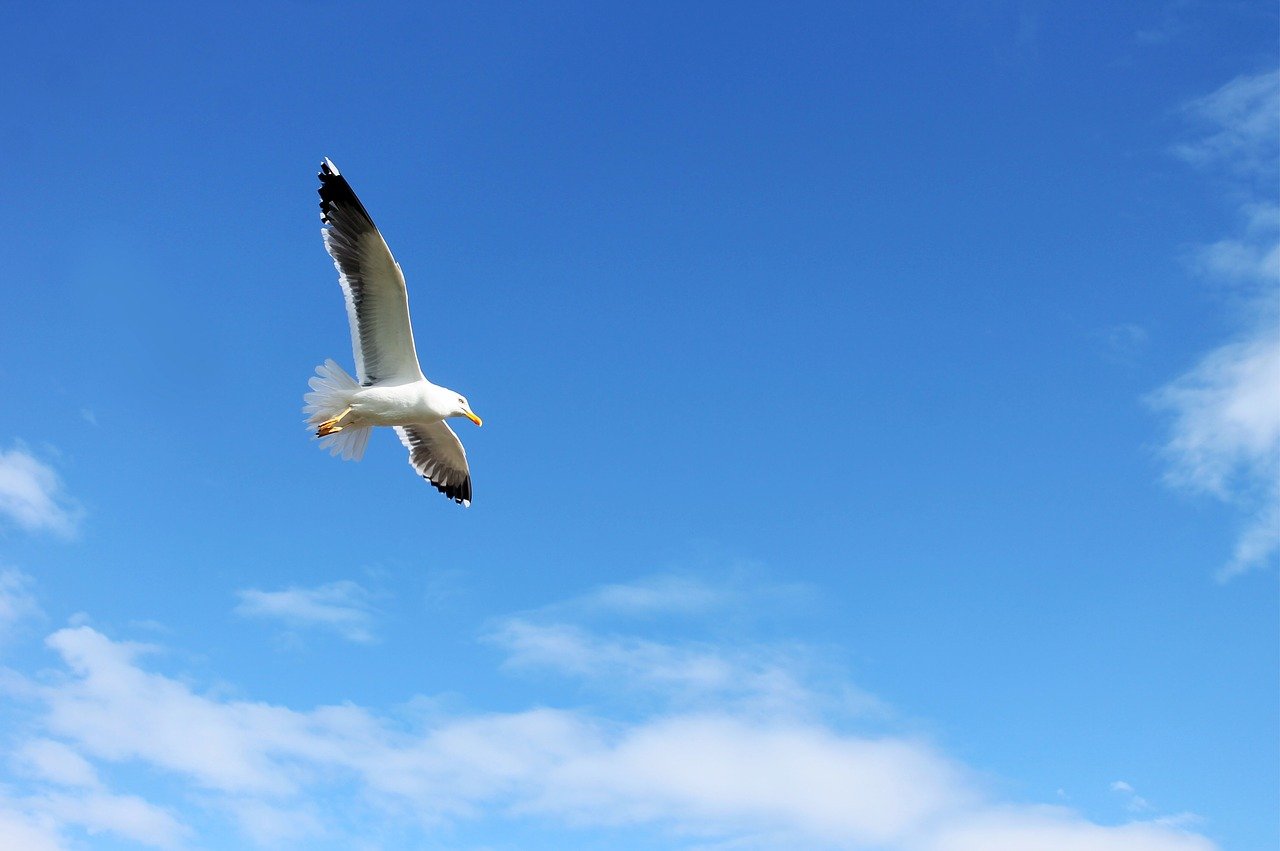In two recent post we took a look at precise vocabulary for expressing different types of movement. First in one post we looked at verbs related to walk and run, and then in another post we looked at verbs related to jump and fall. Now we’ll look at verbs related to flying, that it, moving through the air. As always, we’ll talk about both meaning and usage, with loads of examples to help you make sense.
Fly
To fly is the most common and basic verb of moving through the air. Birds fly, planes fly, and those insects called flies fly, too!
- Many birds fly south for the winter every year.
- The plane is flying through a storm, so the ride will be bumpy.
- There’s a bee flying around my head!
Fly can be an intransitive verb, meaning one that doesn’t take a direct object and simply describes movement through the air.
- Do penguins fly?
- I had a dream that I could fly.
- What kinds of insects can fly?
Fly can also be a transitive verb, meaning to operate something that can move through the air. In the case of planes and certain other vehicles, you can use pilot instead of fly.
- Do you know how to fly a plane?
- Mary flew/piloted commercial planes until she retired last year.
- The kids are flying kites in the park.
Fly can also mean to move really quickly, even on the ground.
- I had to run out of the street because a car came flying around the corner.
- The cat flew out of the room when it saw the dog.
- Time flies when you’re having fun!
Soar and More
Fly is the basic verb of moving through the air. If you want to be more specific, you’ve got plenty of other verbs to choose from.
To soar is similar to fly, but it has a sense of flying very high, and it conveys a notion of beauty and freedom.
- An eagle is soaring over the valley.
- I had a dream where I could fly, and I soared above the clouds.
- Our hopes are soaring that everything will change for the better.
Notice the figurative use of soar in the last example. Soar is often used this way, for example when costs or something else is increasing dramatically in number or amount.
- Costs are soaring, so the company is re-evaluating its finances.
- The unemployment rate soared during the pandemic.
- Reports of violence soared after the election.
To glide is to move through the air without using any energy. Birds glide when they’re not flapping their wings. Certain kinds of squirrels can glide by jumping off of trees and spreading their arms and legs. A glider is a craft that lets you fly by gently falling through the air.
- The duck stopped flapping its wings and glided down onto the lake.
- The paper airplane glided across the room and hit the wall.
- The hang glider took off from a high hill.
Notice that flap is the action that birds do to make their wings move. Flapping doesn’t describe the actual movement of the bird, but rather the way it moves or beats its wings. Flap can also describe the way something moves in wind.
- Hummingbirds flap their wings so quickly you can’t see them.
- The bird glided from the branch and then began to flap its wings and flew away.
- The wind was so strong that I could hear the flag flapping all night long.
To flutter is to fly with quick wing movements. Usually small insects flutter, or other things that are small and light. Flutter can also be used to express the way things move lightly in the breeze, for example hair or clothes. (If a flag flaps in a strong wind, it may just flutter in a light breeze.) If your heart flutters, it means that you’re feeling a quick sense of happiness or love.
- There are always butterflies fluttering over the flowers in my garden.
- Moths flutter around streetlights at night.
- Mary’s hair kept fluttering in front of her face.
- My heart flutters every time I hear your voice!
To flit is another verb that’s typically used for small and light things, like flutter. Flit has more of a sense of quick movement from place to place. Flit can also be used figuratively, meaning to move quickly from one thing to another.
- The bee flitted from flower to flower gathering pollen.
- There are always butterflies flitting around the garden in the summer.
- If you want to master something, you can’t flit from one interest to another!
To buzz is to fly while making a buzzing sound, almost always of insects.
- There’s a mosquito buzzing around my head.
- I don’t want to eat outside with all of these flies buzzing around.
- The bee slowly buzzed from flower to flower.
To drift means to move through air (or water) by being pushed. Drift is also used figuratively to mean moving without direction or purpose. A drifter is a person who moves through life without plan or purpose.
- Smoke from the chimney is drifting into the woods.
- Pollen drifts from one plant to another.
- If you want to be successful, you can’t just drift through life.
- When I was young I drifted from one job to another, but then I finally settled down.
To swoop is to dive through the air very quickly from a higher position to a lower position. It’s often used with down.
- The hawk swooped down over the field and grabbed the rabbit.
- The birds swooped down from the trees to eat the bread I left.
- The plane swooped down over the highway and made an emergency landing.
Learn English with the Language Garage!
If you’re interested in ESL/EFL lessons, please check out our English courses. We have private lessons, lessons for you and a friend or colleague, or small groups. Or see our other posts on English grammar, vocabulary, and more.






